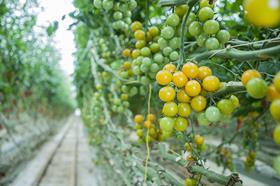
SanLucar’sinternational expansionefforts areset to intensify over the coming year as theroll out of its vertically integratedsupplymodel in Asia and the Middle Eastcontinues to gather pace.
The initialgoal,says new markets director Omar ElNaggar, is to establishthe business in these new and exciting markets and show the strength of the brand. “This is the first step inour journey tobecome a global provider covering the whole supply chain from the development of new varieties through to delivery,” he explains.
In a few weeks the companywillmake its debut in some Asian markets with the start of the Spanishcitrusseason when it carries out its first shipments of oranges, mandarins and grapefruit.Spanish-growncitrus varietieswill betimed tohave some arrivals in Asia tocoincide withthe Chinese New Year festivities. 
“The marketing window we are aiming for is from week 8 onwards, when domestic production slows down in some Asian countries” ElNaggarsays. “We think that some of the varieties we specialise in willhave the potential to do well in some of these Asian nations as they are sweeter than some of the traditional varieties and some are seedless.”
SanLucarrecently started shippingEcuadorean bananas to a number of Asian and Arab Gulf markets and the company is currently looking for a local partner to ripen the fruit to ensure the highest quality upon arrival.
Meanwhile, the announcementthat the import protocol for Spanish peaches and plums will be in place in time for the new season has opened up another avenue that the company is keen to explore. It already ships some Turkish cherries to Hong Kong and is looking to incorporate new sources and varieties into itsstonefruitprogrammeto Asia and the Arab Gulf markets over the coming year.
This is notSanLucar’sfirst foray into the Asian market – over the past year it has been building a steady business in Singapore, China and Hong Kong supplying some of the major retailers there. Although a “fiercely competitive market”, ElNaggarsays it has proved a good market for introducing new products and concepts to Asian consumers.
“Right now our focus is on introducing theSanLucarconcept,and everything that lies behind it,to the Asian an Arab Gulf markets. Further down the line we plan to set up our own production in the region to understand local needs further but not now,” he explains.
Meanwhile, the company’s production baseis alsoexpanding. Having invested in its own citrus production in South Africa and bananas in Ecuador, it has also increased its tomato output fromTunisia where it is already established inglasshouse-grown tomatoes and raspberries for theEuropeanmarket and eventually plans to develop production of blueberries and grapesas well.
“Tunisia’s climate and location make it an ideal base from which to supply our customers in Europe and in the future it will becomea major source of production,” says ElNaggar.
SanLucarisalso keen to expand its range of Turkish-grown fruit with its grower partner in Antalya, with which it has been producing cherries for several years, and is exploring the potential of developing blueberry production in the country.



